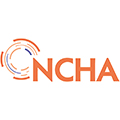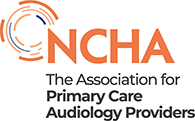16 April 2021
NCHA member update – 16 April
This week:
- The future of hearing care
- Over-the-counter hearing aid update
- Covid-19 - cleaning and disinfecting
- SNP committed to audiology reforms
- US rules against adult hearing screening programme
The Ida Institute and Copenhagen Institute for Futures Studies have published a new Future Hearing Journeys report.
Based on a global survey of almost 1,500 people, 60 interviews, focus groups and research, the report focuses on the future of hearing care. It includes potential risks to mitigate, understanding how delivery models and patient preferences might evolve and the impacts of competition and innovation. Some of the key take-home messages include:
- People with hearing loss will continue to need professional help to make the most of technological innovation
- Hearing care professionals will have to work out how to use OTCs and other new technologies and adapt to new care models to meet population needs.
Over-the-counter hearing aid update
This week the New York Times reports on 'hearing aid for the masses' ahead of anticipated FDA guidance on over-the-counter (OTC) hearing aids. The article follows a feature carried by the Wall Street Journal, which covers innovations in hearing care and how new technologies could help people seek help sooner.
Meanwhile, the Hearing Journal reports on a new evidence-based fitting paradigm for OTCs, arguing affordability and accessibility are not enough to address the public health challenge hearing loss presents. Instead, the focus must be on the provision of "quality, rehabilitative hearing care".
Covid-19 - cleaning and disinfecting
The BAA president, Kath Lewis, has shared guidance about how some detergent wipes used on headphones are causing costly damage to equipment. The guidance notes this is due to liquid "making its way through the port that the sounds come from and thus seriously damaging the internal workings of the headphone(s)".
Members are reminded to refer to NCHA's Covid-19 cleaning and disinfecting at a glance, which recommends that you always check the manufacturers' instructions to ensure you do not damage equipment or surfaces.
SNP committed to audiology reforms
The SNP has committed to improving access to community audiology and reducing pressure on acute hospitals.
In its manifesto this week, the SNP said: "We will bolster community audiology provision to help free up capacity in our acute sector. Our ambition is to put community audiology services on par with our free community eye care services." Read the manifesto.
US rules against adult hearing screening programme
The US Preventive Services Task Force (Task Force) has ruled against national screening for hearing loss in asymptomatic older adults based on insufficient evidence.
The Task Force acknowledged that "Hearing loss can adversely affect an individual's quality of life and ability to function independently". It added: "Hearing loss also has been associated with increased risk of falls, hospitalisations, social isolation, and cognitive decline." The Task Force also acknowledged NICE evidence in the UK - which shows that hearing aids are effective and an individual's needs, not thresholds alone, should form the basis of provision.
Harjit Sandhu, Managing Director of the NCHA, said: "Independent research shows how unsupported hearing loss is a major and growing public health challenge, and how early diagnosis is cost-effective and hearing aids help improve quality of life and reduce risks. The Task Force, like the UK National Screening Committee, don't; dispute this, but look to answer a different question. That is whether there is evidence to support screening asymptomatic older adults for hearing loss. We agree here the evidence is less robust. It is important that we, as an audiology community, continue to focus on meeting the needs of all patients who report challenges with hearing and support research into screening programmes for the future."
Read the entire Task Force report.

Press enquiries
Media enquiries should be directed to [email protected] or call 020 7298 5110.
We are happy to put you in touch with our expert policy advisers who can comment on a variety of issues.
You can also follow us on Twitter and LinkedIn.

 Your hearing and aural health
Your hearing and aural health  Commissioners and Policymakers
Commissioners and Policymakers  Member support and guidance
Member support and guidance News and views
News and views
 Hearing map
Hearing map
